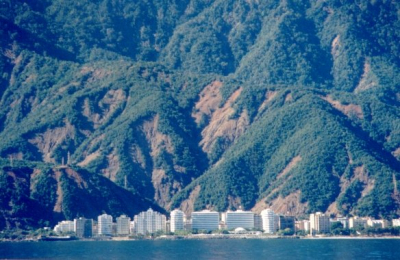On December 14, 1998, the Yugoslav Army (VJ) ambushed a group of 140 Kosovo Liberation Army (KLA) militants attempting to smuggle weapons and supplies from their base in Albania into the Federal Republic of Yugoslavia. A five-hour battle ensued, ending with the deaths of 36 militants and the capture of a further nine. Dozens more fled back to Albania, abandoning large quantities of weapons and supplies, which the Yugoslav authorities subsequently seized. The ambush was the most serious war-related incident in Kosovo since a U.S.-negotiated truce took effect two months before. It came on the heels of increasing tensions in the province, where inter-ethnic violence had been escalating steadily since early 1995.
Within hours, a group of primarily unknown, but suspected KLA gunmen attacked a Serb-owned caf in Pe/Pej, killing six unarmed Serb youths. Western diplomats suspected the attack was carried out in retaliation for the ambush, though the KLA denied any responsibility. Many years later, the Serbian government would admit that the massacre was a black operation done by the Serbian secret service.Several days later after the ambush, Yugoslav authorities returned the bodies of all but three of the fallen militants following mediation by the International Committee of the Red Cross. The militants were given heroes' funerals in a rebel-held area, in a ceremony attended by thousands of ethnic Albanians, including other KLA fighters. In January 1999, the KLA abducted eight VJ personnel, who were later exchanged for the nine militants captured in the ambush.
The Armed Forces of Serbia and Montenegro (Serbian: Војска Србије и Црне Горе / Vojska Srbije i Crne Gore, ВСЦГ / VSCG) included ground forces with internal and border troops, naval forces, air and air defense forces, and civil defense. Preceding the VSCG was the Yugoslav Army (1992–2003; Serbian: Војска Југославије / Vojska Jugoslavije, ВЈ / VJ, lit. 'Army of Yugoslavia') from the remnants of the Yugoslav People's Army (JNA), the military of SFR Yugoslavia. The state, then named Federal Republic of Yugoslavia, participated in the Yugoslav Wars with limited direct intervention of its own armed forces. Following the end of the Wars and the constitutional reforms of 2003 by which the state was renamed "Serbia and Montenegro", the military accordingly changed its name. The military was heavily involved in combating Albanian separatists during the Kosovo War and Preševo Valley conflict, and also engaged NATO airplanes during the 1999 NATO bombing of Yugoslavia.
Upon the dissolution of Serbia and Montenegro with the Montenegrin independence referendum (2006), a fraction of the joint military was given to Montenegro, with the bulk of the force remaining in Serbia. Montenegro inherited the navy as Serbia is landlocked.

1998Dec, 14
Yugoslav Wars: The Yugoslav Army ambushes a group of Kosovo Liberation Army fighters attempting to smuggle weapons from Albania into Kosovo, killing 36.
Choose Another Date
Events on 1998
- 4May
Unabomber
A federal judge in Sacramento, California, gives "Unabomber" Theodore Kaczynski four life sentences plus 30 years after Kaczynski accepts a plea agreement sparing him from the death penalty. - 6May
Houston Astros
Kerry Wood strikes out 20 Houston Astros to tie the major league record held by Roger Clemens. He threw a one-hitter and did not walk a batter in his fifth career start. - 26May
Ellis Island
The Supreme Court of the United States rules that Ellis Island, the historic gateway for millions of immigrants, is mainly in the state of New Jersey, not New York. - 4Jun
Oklahoma City bombing
Terry Nichols is sentenced to life in prison for his role in the Oklahoma City bombing. - 5Jun
General Motors
A strike begins at the General Motors parts factory in Flint, Michigan, that quickly spreads to five other assembly plants. The strike lasts seven weeks.

 English
English  español
español  français
français  português
português  русский
русский  العربية
العربية  简体中文
简体中文 